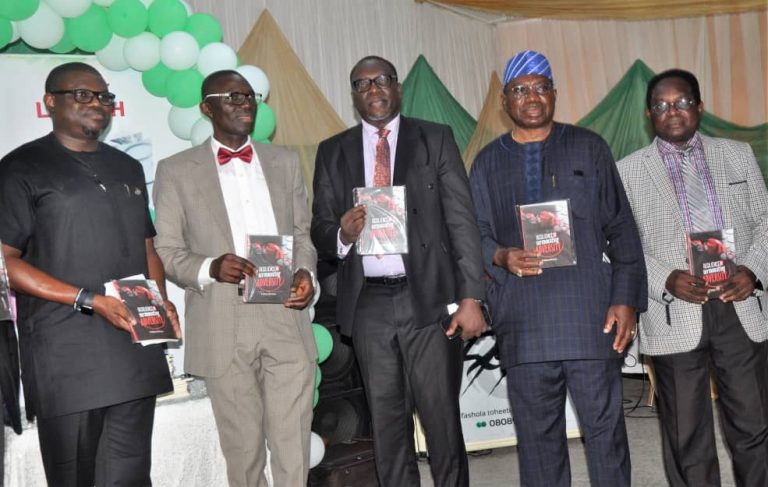
By Lilian U. Okoro
The Lagos State Commissioner for Health, Prof. Akin Abayomi, says the state government is encouraging collaborations that will allow health insurance scheme to be part of mental health services.
The commissioner, represented by Dr Tolu Ajomale, Head, Special Project and Mental Health, Lagos State Ministry of Health, made this known at a lecture/book launch organised by the Federal Neuro-Psychiatric Hospital, Yaba on Tuesday in Lagos.
The News Agency of Nigeria (NAN) reports that the lecture was organised to mark the 2022 World Mental Health Day (MHD) with the theme: `Make Mental Health and Well-being for All A Global Priority’.
The event featured the unveiling of a book, `Resilience In Surmounting Adversity’, written by Dr Ougbenga Owoeye, Medical Director, Federal Neuro-psychiatric Hospital Yaba.
Abayomi said that a lot of patients were unable to pay for the kind of mental healthcare that they needed.
According to him, there is an increasing demand for mental health services as against the decreasing supply of the services due to the brain drain challenge being experienced in the health sector.
The commissioner attributed the increased demand for mental health services to the greater awareness education that had been created around mental health issues.
“A lot of patients who are suffering from mental health challenges are unable to pay for the kind of care they need; hence the need for creating a platform that can alleviate the financial burden.
“So, we have been working and will continue to encourage collaborations that will allow health insurance scheme to cover for healthcare particularly for patients living with mental health challenges.
“There are a lot of private healthcare providers who are willing to render healthcare services around that corridor.
“The objective is to ensure that every patients with mental health issue have access to the kind of care/services he needs,” Abayomi said.
Speaking, Owoeye advised Nigerians to guard their mental health jealously irrespective of life’s challenges in order to avoid mental health problems.
Owoeye decried the poor attitude of the public toward their mental health, saying that majority of Nigerians perceiveg mental health evaluation as only meant for mad persons.
According to him, the Nigerian society is a culture medium for organisms that put people at risk of mental illness.
He said that the devastating effects of insurgency, insecurity, kidnapping, economic downturns and other challenges across the country, had left several people in need of psychiatric evaluation.
According to him, every Nigerian and indeed all humans are prone to mental illnesses because there is no immunity to mental illness.
He also appealed for prioritisation of mental health assessment among the citizens.
“Every individual irrespective of status, background, tribe, religion is expected to have access to quality mental healthcare.
“This is because every human irrespective of class faces one societal ill or the other, stress and other challenges that could affect his/her mental health wellbeing.
“Such challenges are predisposing factors to depression, anxiety and could lead to suicide, if not properly checked.
“However, the book contained approaches to be taken when faced with mental health predisposing factors,” Owoeye said.
Also, the Head, Clinical Services in the hospital, Dr Stephen Oluwaniyi, urged Nigerians to change misconception and mindset that only mad people need psychiatric services or were expected to go to psychiatric hospital.
Oluwaniyi said that everyone including the foetus in the womb needed psychiatric care.
According to him, a pregnant woman needs to receive some kind of psychiatric care and avoid certain things that may affect the mental well-being of the child in future.
“Mental health maintenance culture in Nigeria is very low; making it difficult for people to access health care or get diagnosed or even acknowledge the fact that they may be suffering some kind of mental health issue.
“When a typical Nigerian hears the word ‘mental illness’ his or her first thought would be madness or some sort of aggressive behaviours.
“This is a misconception and wrong belief that need to be changed,” he said. (NAN)





